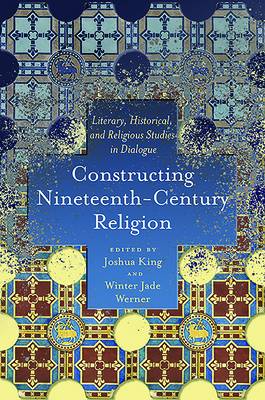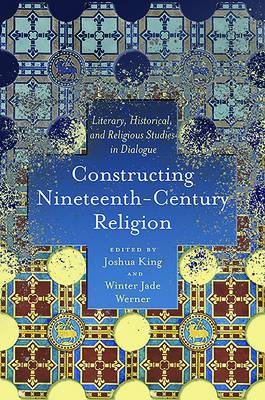
Bedankt voor het vertrouwen het afgelopen jaar! Om jou te bedanken bieden we GRATIS verzending (in België) aan op alles gedurende de hele maand januari.
- Afhalen na 1 uur in een winkel met voorraad
- In januari gratis thuislevering in België
- Ruim aanbod met 7 miljoen producten
Bedankt voor het vertrouwen het afgelopen jaar! Om jou te bedanken bieden we GRATIS verzending (in België) aan op alles gedurende de hele maand januari.
- Afhalen na 1 uur in een winkel met voorraad
- In januari gratis thuislevering in België
- Ruim aanbod met 7 miljoen producten
Zoeken
Constructing Nineteenth-Century Religion
Literary, Historical, and Religious Studies in Dialogue
Joshua King
€ 59,45
+ 118 punten
Uitvoering
Omschrijving
Bringing together scholars from literary, historical, and religious studies, Constructing Nineteenth-Century Religioninterrogates the seemingly obvious category of "religion." This collection argues that any application of religion engages in complex and relatively modern historical processes. In considering the various ways that nineteenth-century religion was constructed, commodified, and practiced, contributors to this volume "speak" to each other, finding interdisciplinary links and resonances across a range of texts and contexts. The participle in its title-Constructing-acknowledges that any articulation of nineteenth-century religion is never just a work of the past: scholars also actively construct religion as their disciplinary assumptions (and indeed personal and lived investments) shape their research and findings. Constructing Nineteenth-Century Religion newly analyzes the diverse ways in which religion was debated and deployed in a wide range of nineteenth-century texts and contexts. While focusing primarily on nineteenth-century Britain, the collection also contributes to the increasingly transnational and transcultural outlook of postsecular studies, drawing connections between Britain and the United States, continental Europe, and colonial India.
Specificaties
Betrokkenen
- Auteur(s):
- Uitgeverij:
Inhoud
- Aantal bladzijden:
- 334
- Taal:
- Engels
- Reeks:
Eigenschappen
- Productcode (EAN):
- 9780814255292
- Verschijningsdatum:
- 2/04/2022
- Uitvoering:
- Paperback
- Formaat:
- Trade paperback (VS)
- Afmetingen:
- 152 mm x 229 mm
- Gewicht:
- 489 g

Alleen bij Standaard Boekhandel
+ 118 punten op je klantenkaart van Standaard Boekhandel
Beoordelingen
We publiceren alleen reviews die voldoen aan de voorwaarden voor reviews. Bekijk onze voorwaarden voor reviews.









